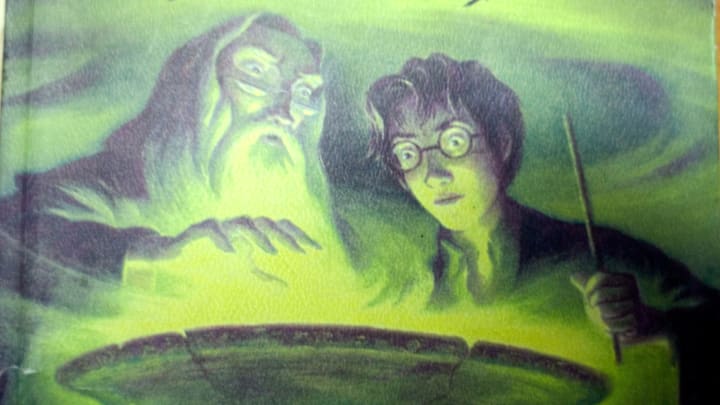The Harry Potter books are filled with moments far darker and more haunting than what made it to the big screen.
While the movies captured the magic and adventure, many of the series’s grittiest, most emotionally devastating scenes were toned down or cut entirely. With HBO’s upcoming adaptation promising a faithful retelling, there’s a real chance these chilling moments could finally get the spotlight they deserve—giving fans a deeper, more intense look at the Wizarding World’s shadowy side.
Neville's parents
One of the most tragic stories in all of the Harry Potter books is that of Frank and Alice Longbottom, the parents of Harry's Hogwarts classmate Neville. Frank and Alice were both active participants in the first Wizarding War as members of the original Order of the Phoenix. Before the end of the war, Frank and Alice were captured and tortured by a group of Death Eaters, including Bellatrix Lestrange.
After prolonged torture from the cruciatus curse, Alice and Frank were driven insane and lost the ability to function in society. Neville regularly visited his parents in St. Mungo's hospital, but we never saw them in person in the films aside from a photograph.
Having flashbacks of their happiness, torture, and modern scenes of Neville visiting them would add so many layers to Neville's character that were absent in the films. It would also make Bellatrix's death and Neville's role in the final battle that much more satisfying.
Voldemort murdering his family
One of the many flashbacks omitted from the movies includes Voldemort murdering his father, Tom Riddle Senior, and his grandparents. This stemmed from Voldemort's rage at the fact that his mother, Merope Gaunt, died in childbirth, and he was raised in an orphanage. He did not know that his Muggle father was likely coerced with magic to procreate with Gaunt, so he blamed him for abandoning him and his mother.
When Voldemort was 16, he tracked his father's family to a town called Little Hangton, where he learned the details of his birth from his uncle Morfin Gaunt. Voldemort then used the killing curse on his father and grandparents, and framed Morfin for the murders.
Including more details about Voldemort's upbringing can paint a better picture of why he does the things he does in the main story.
For more Winter is Coming content directly in your Google feed, add us as a preferred source!
Wormtail's death
During The Deathly Hallows, Harry, Ron, and Hermione were captured by a group of snatchers and taken to Malfoy Manor. Unlike in the movie, this is where Wormtail definitively met his end, whereas the movie left his death ambiguous.
When Wormtail was sent to check on the prisoners in the cellar, Harry reminded him of the life debt that he owed. This called back to the Prisoner of Azkaban, when Harry prevented Remus Lupin and Sirius Black from murdering Wormtail to avenge James and Lilly.
When Harry brought up the life debt, Wormtail hesitated to harm Harry for a brief moment, and a shimmer of remorse flashed in his eyes. This hesitation resulted in Wormtail's silver hand, which was given to him by Lord Voldemort, to strangle him to death for betraying the Dark Lord.
This needs to be shown on screen to bring Wormtail's story full circle. It shows that even if he wanted to betray Voldemort, he was unable to.
Fenrir Greyback's brutality
Fenrir Greyback was truly one of the most vile characters in the books. After being bitten by a werewolf at a young age, he made it his life's mission to create as many werewolves as possible to take over the Wizarding World. And this is why he allied himself with Voldemort. He did not subscribe to the Death Eaters' beliefs; he simply wanted access to more victims.
Some details that should be included in the show include Greyback biting a five-year-old Remus Lupin, which could be shown in a flashback scene. Greyback also horrifically scarred Bill Weasley's face during the battle of the Astronomy Tower, which was almost entirely cut from The Half Blood Prince film.
Barty Crouch Jr.'s death
One overlooked detail in The Goblet of Fire film is Baty Crouch Jr.'s fate. In the books, after he confessed to impersonating Alastor Moodey and was captured by Dumbledore, Minerva McGonagall, and Severus Snape, Crouch was subjected to the dementor's kiss when Cornelius Fudge came to interrogate him.
This was an incredibly important detail because it marked the first time that Fudge completely disregarded evidence and eyewitness testimony that Voldemort had returned, to the point where he eliminated Crouch to hide from the truth.
This could also be a prime opportunity to show what exactly happens to a person when they are given the dementor's kiss, which could make for a horrifying and interesting sequence in the show.
Dumbledore's childhood
Dumbledore's origin story is one worth showing on screen for so many reasons. Like Voldemort, his childhood was full of strife and suffering. But despite having so many similarities and being arguably the two most powerful wizards of their age, Dumbledore and Voldemort ended up on different sides of the moral struggle in the Harry Potter series.
And this is a bit shocking, because Dumbledore initially had disdain for Muggles, which led him to join forces with Gellert Grindelwald. This hatred may have stemmed from a group of Muggle boys brutally assaulting his sister Ariana. Dumbledore's father, Brian, took revenge on the Muggles and got himself thrown into Azkaban, which likely contributed to his son's rebellious nature.
The movies only scratched the surface of these details, and it would be better to have flashbacks to show the contrast and similarities between Dumbledore and Voldemort.
HBO’s Harry Potter series is expected to premiere in 2027.
